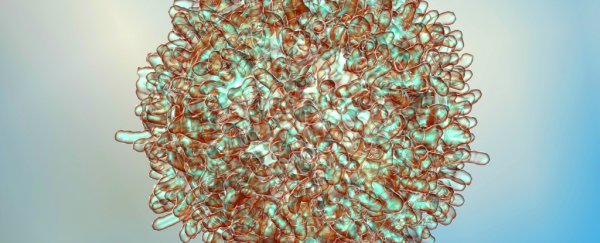Doctors are reporting "extraordinary" results after the first clinical trial of an experimental type of immunotherapy against advanced leukaemia.
The new approach was tested on 29 late-stage leukaemia patients who'd exhausted all other options. After the therapy, 27 of them went into remission - that's an incredible 93 percent success rate. One patient who wasn't successful the first time around went into remission after a second, higher dose.
To be clear, this is a very early trial and not all patients stayed in remission. In other words, it's much too soon to be getting excited about what this means for the future of leukaemia.
But it is promising that patients who are no longer responding to other treatments might eventually have another option available to them.
"Patients who come onto the trial have really limited options for treatment. So the fact that we're getting so many into remission is giving these people a way forward," said lead researcher Cameron Turtle from the Fred Hutchinson Cancer Research Centre in Seattle.
"You don't expect results like these from early-phase trials. That's why these response rates are so extraordinary," added one of his collaborators, David Maloney.
The new treatment uses the body's own immune system to attack cancer cells. In a perfect world, the immune system would do that anyway, but our T cells can't always detect cancer cells in the bloodstream and, once tumours form, they have all kinds of sneaky techniques for staying hidden.
To overcome this, the researchers extracted the patients' T cells through blood samples, and then genetically engineered those T cells to contain a receptor molecule called CAR (or chimeric antigen receptor, if you want to get fancy). CAR's important because it recognises and targets cells that carry a marker called CD19 - and, as you might have guessed, that's carried by a lot of advanced leukaemia cells.
The researchers then multiply these new and improve T cells, which they're calling 'CAR T', in the lab, so that they have enough to inject back into the patients. The idea is that the CAR T cells will track down and attack leukaemia.
And, according to these first results, it works pretty well. A few weeks after the treatment, a high-sensitivity test couldn't detect any trace of the cancer in the bone marrow of 93 percent of the patients.
Similar experimental immunotherapy approaches have also had pretty incredible results in early trials.
But the researchers stress that it's too early to know what the long-term outcomes are. The study was limited in sample size, and a few patients relapsed after the initial treatment. The side effects were also extreme in some patients, most commonly involving high fever and low blood pressure. In several patients, the cancer ended up becoming resistant to the CAR T cells.
But it's a great starting point. Now that we have these promising early results, larger trials are being planned to follow up on how we can best use this new therapy.
"This is just the beginning," said Turtle. "It sounds fantastic to say that we get over 90 percent remissions, but there's so much more work to do make sure they're durable remissions, to work out who's going to benefit the most, and extend this work to other diseases."
The results have been published in the Journal of Clinical Investigation.
